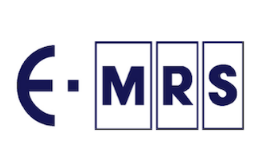Proposal for a PhD project in Canada.
- Position Description
Health Canada requires the food industry to declare 10 allergens and gluten sources on food packaging. Given the growing number of tests required, and the high cost of allergen detection methods such as ELISA (Enzyme-Linked Immuno-Sorbent Assay), the famous precautionary statement “May contain …” has become overspread. In the absence of a more effective and less costly detection method, allergy sufferers will continue to impose either a restrictive diet or a risk to their health.
A team of researchers from three Quebec universities (Université de Sherbrooke, UdeS, Université de Montréal, UdeM and Université Laval) has teamed up with two government agencies (Canadian Food Inspection Agency, Health Canada) and two non-profit consumer organizations (Food Allergy Canada and Cœliaque Québec) to develop a new allergen detection method that is more robust, more sensitive, and less expensive than ELISA. The mehtod is based on a Raman probe, which consists of a carbon nanohorn (CNH) in which a dye is encapsulated and onto which an antibody is grafted. The Raman signal will be more precise and detailed than the fluorescence signal from ELISA and will enable parallel acquisition of signals from more than one allergen at a time. The aim is to offer the agri-food industry an effective, robust and less expensive device. Ultimately, this technological leverage will enable stakeholders to improve the use of precautionary allergen labelling and better protect allergic consumers.
The aim of this proposed thesis project is to optimize the plasma synthesis of CNHs, focusing on dye purification and encapsulation. The candidate will (i) optimize the CNHs nanostructure, (ii) refine the dye purification and encapsulation protocols (iii) identify the dyes to be encapsulated in CNHs based on the distinctive aspects of their Raman spectra (iv) characterize the probes by transmission electron microscopy to better understand the interaction between the dyes and the CNHs. This work will help clarify the mechanisms by which CNHs are encapsulated, to improve the R-ELISA probe and establish a solid basis for the selection and encapsulation protocol.
This thesis will be supervised by Prof. Nadi Braidy of UdeS and Prof. Richard Martel of UdeM. Most of the work will be carried out at the UdeS’s Institut interdisciplinaire d’innovation technologique (3IT), notably in the new transmission electron microscopy laboratory, with internships planned in UdeM laboratories. The project will be carried out in close collaboration with Université Laval, project partners and collaborators in international laboratories. The candidate will thus benefit from an exceptional international research environment where students, engineers, professors and industrialists work hand in hand to develop the technologies of the future to improve public health and the food industry in Canada.
- Your profile
– University degree and master’s degree in engineering or science in chemistry, materials or physics.
– Experience in synthesis or characterization of carbon nanomaterials. Extensive experience in transmission electron microscopy characterization methods is an asset.
– Ability to communicate both orally and in writing in English or French.
– Strong capacity for adaptation, autonomy, teamwork and problem-solving.
– Strong taste for design, experimental work, interdisciplinary R&D and entrepreneurship.
- To apply
CV, transcripts of the past two years and references to provide at emplois-materiaux@usherbrooke.ca
À lire aussi

First Joint European MRS Chapter workshop
The Paris MRS Chapter is glad to organize the first joint European MRS Chapter workshop in collaboration with Cologne/Germany, Hasselth/Belgium and Genova/Italy MRS Chapters in Paris. From 19th to 22th March, you will have the chance to share and discuss...

PhD project – Biomaker parameters identification for food allergens detection
PhD project in Canada Position DescriptionHealth Canada requires the food industry to declare 10 allergens and gluten sources on food packaging. Given the growing number of tests required, and the high cost of allergen detection methods such as...

PDF Project – Biomarker parameters identification for food allergens detection
Proposal for a postdoctoral fellowship in Canada. Position Description Health Canada requires the food industry to declare 10 allergens and gluten sources on food packaging. Given the growing number of tests required, and the high cost of...

PhD project – Signals quantification of Raman probe for allergen detection
Proposal for a PhD project in Canada Position Description Health Canada requires the food industry to declare 10 allergens and gluten sources on food packaging. Given the growing number of tests required, and the high cost of allergen detection...
